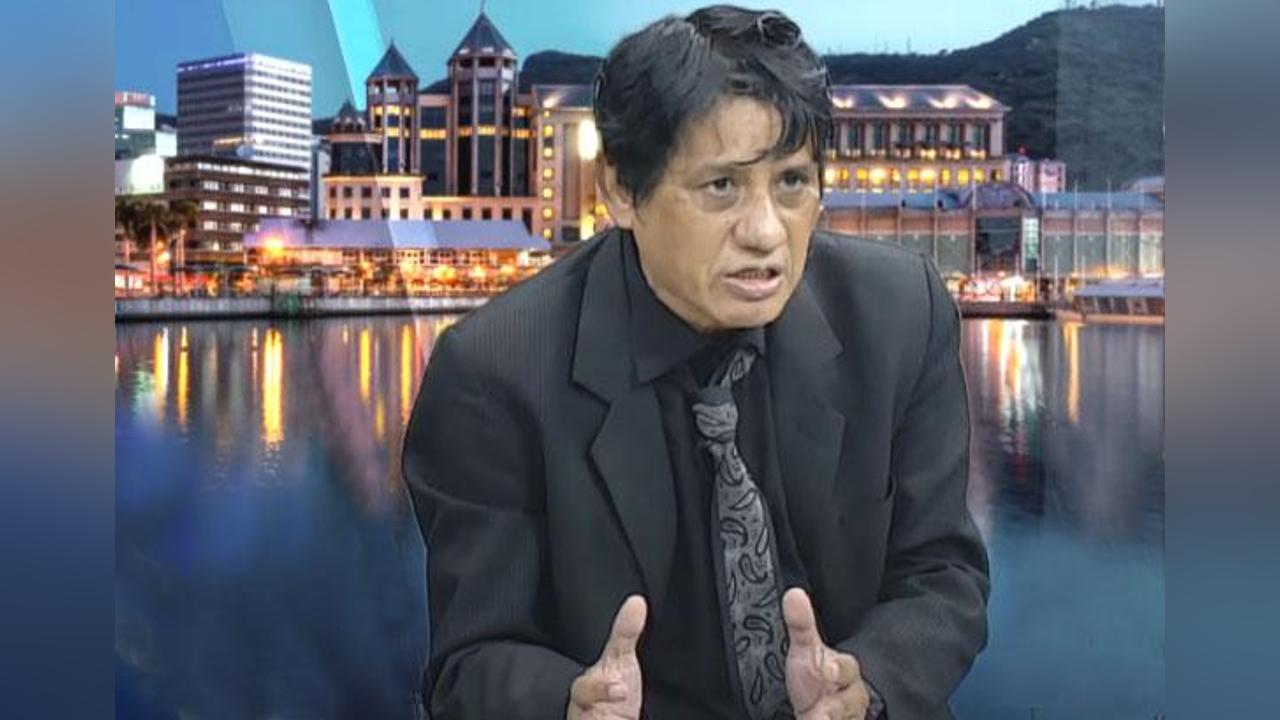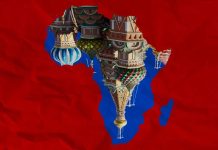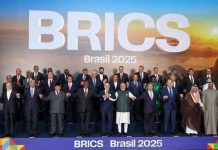Africa-Press – Mauritius. It is the Franklin case and its ramifications that dominate the news these days. The activities of the ‘King of the West’ raise important questions as to how this case has been handled by the relevant authorities. What are the most troubling elements in this case, in your opinion?
Jocelyn Chan Low: The most troubling element in the whole affair, from an institutional point of view, from the functioning of our democratic regime, from respect for the ‘rule of law’ and our international commitments, is undoubtedly the non-transmission of the report of the rogatory commission concerning two defendants to the Reunionese authorities of the Republic of France.
To this must be added the disturbing silence, faced with the legitimate questions of the Mauritian public, of the local authorities who take refuge behind the confidentiality of the exchanges between the authorities of the two countries when the trial has already been heard and the two people tried and sentenced.
.
Shakeel Mohamed is perfectly right to call for the establishment of a commission of inquiry chaired by a Commonwealth judge to shed light on the question because it is not yet clear whose fault lies – the judiciary or the office of the President.
‘Attorney General or to another institution, the Minister of Foreign Affairs having cleared himself in his press conference.
* More detailed revelations about leading figures in the country are expected to come out sooner or later, it is said, and would be more explosive than anything released so far.
These are certainly rumors conveyed on social networks, but this alleged trafficker had to benefit from protection in high places – institutional or political – so that he was not worried, right?
First, from a historical point of view, the narcotics trade of today bears an uncanny resemblance to the illegal slave trade to Mauritius from 1810 to 1825 when approximately 75,000 slaves were smuggled into the island.
.
The topography of the island, with its many anchorages, especially on the west or south-east coast where slave ships could dock and transfer their human cargo to the canoes of accomplice fishermen had certainly facilitated these prohibited transactions.
But as observers at the time pointed out and historians since have shown, breaches of the law of this magnitude could not have been committed without the complicity and connivance of crooked officers in many of institutions, from civil commissioners to police authorities, even members of the judiciary of the time.
Moreover, General John Gage Hill went so far as to suspend Georges Smith, the chief judge at the time. But some historians like Deryck Scarr and Anthony Barker do not hesitate to point the finger at the then governor, Sir Robert Farquhar himself and his associates for having not only tolerated but also benefited financially from this slave trade.
illegal, having acquired properties on the island, through nominees and thus using slave labor illegally imported. In this case of drug trafficking, there are obviously rumors in the public square, amplified by social networks.
That said, rumors of collusion between members of the political class and the drug mafia are not new. We know the affair of the ‘Amsterdam Boys’ of 1985. Then, a well-known deputy at the time was quoted in the Rault report on drugs.
Similarly, other deputies or candidates for deputies had to defend their honor and reputation before the courts following the publication of the Lam Shang Leen report. We then understand the doubts and suspicions of the general public, although nothing concrete has been established so far.
Nevertheless, the very existence of these doubts, suspicions and rumors above all reveals that our political class is greatly discredited and devalued in the eyes of a large part of the electorate.
Members of the public believe that among this political class are elements devoid of any moral sense to the extent that they are ready to associate with merchants of death for pecuniary gain, to enrich themselves.
On the eve of the 55th anniversary of the independence of Mauritius, it is a lamentable observation on the perception of the political class by part of the Mauritian population.
* In fact, one gets the impression that given all the hype surrounding this case, the main target is not really Mr. Franklin, but some powerful people of the day. What do you think?
This impression stems from the troubling elements surrounding this whole affair which, from a media point of view, begins with a clip posted on social networks alleging that Bruno Laurette was trapped and languishing in prison because he had mentioned, during his last gathering , the supposedly ‘troubled’ relations between Franklin, described as ‘the king of the west’ and the boss of the OHS.
From there followed Franklin’s famous press conference and his accusations against the social activist and the consequences and rebound that we know, in particular the disclosure that Franklin and one of his alleged accomplices had been condemned by the justice of Reunion on July 21, 2021 to 7 years in prison for Zamal trafficking but that there had never been an extradition and perhaps this judgment was not even communicated to him!
Furthermore, not only is he still at large despite having been the subject, according to the press, of an international arrest warrant, his passport was renewed in December 2022 and he was able to travel to Madagascar and, his return, he was not arrested when he got off the plane although he was the subject of an arrest warrant from the court of Bambous!
Add to that the case of the rogatory commission concerning him, we are obviously faced with a series of administrative inconsistencies which becomes even more intriguing with the actions deemed late by the ICAC against this individual – who says he cannot read but who understands the content of text messages – and who, according to the icac, has been able to accumulate so much wealth in such a short time.
Where were the authorities responsible for enforcing the laws or responsible for investigating suspects, reported by foreign authorities – in a state led by a Prime Minister who claims to have declared war on drug traffickers to the point of to have welcomed the creation of a second unit within the Police, the SST, to support the ADSU?
Obviously, in view of these inconsistencies, it is the duty of the journalist to dig deep into this affair to verify whether, behind all this, by connecting the dots between them (connecting the dots), there is not a very well-honed system which extends beyond the west coast of the country.
* It is the ICAC that conducts the investigations these days; the main purpose would be to determine if money laundering has occurred. But given his background, some think it is to be feared that the anti-corruption commission will take care of this case. Your opinion?
It is true that given the number of unsolved cases and files lying around in drawers, such as the Angus Road case, the perception that the ICAC is only a launderer for suspects in certain cases of money laundering or other crimes of the same ilk have made their way among the population, especially since the director of the institution is now appointed directly by the Prime Minister, the law having been amended to this effect.
But it should be noted that money laundering offenses with fictitious companies and many nominees are not so easy to elucidate. I am far from a specialist in ‘forensic accounting’ but it is an area where the cooperation of many institutions is essential, hence the slowness and delays.
Above all, the competence and integrity of all ICAC officers should not be questioned. In my opinion, they should be given the time they need to complete the investigation and not make hasty judgments.
* The full range of evil drug trafficking ramifications in the country are not yet known, but Mauritius is already being talked about in terms of a ‘narco-state’.
It’s a bit strong though, isn’t it? What is a narco state? In fact, it is a journalistic term that has no precise definition. For some, a “narco state” is defined in relation to the preponderant weight that the drug business plays in the country’s economy.
Another definition relates to “state capture” by drug traffickers who, as a result, exercise control over almost all institutions, the government, political parties, the police, the judiciary, the administration, etc.
What about Mauritius? The latest drug seizures evaluated, not in millions but in billions of rupees, like the case of the backhoe loader, or the tampered gas canisters gives us an idea of the sums involved.
Where do these sums come from and what about their laundering? In a talk show on Top FM, Rajen Valayden assessed the weight of this parallel economy at 200 billion rupees.
And I’m sure many Mauritians have a lot of questions about these ostentatious signs of wealth in the country that don’t tally with Mauritius’ reported GDP.
As for the second definition of the “narco state” which refers to political and administrative institutions, there are several disturbing elements in relation to cases not yet elucidated to such an extent that many Mauritians, rightly or wrongly, share the view of the Leader of the Opposition on the matter, namely that we are on the verge of becoming one.
For More News And Analysis About Mauritius Follow Africa-Press







